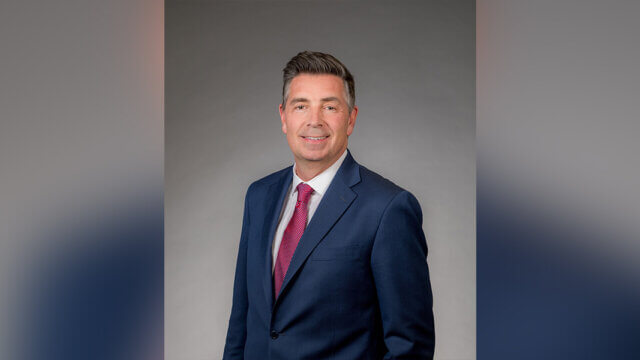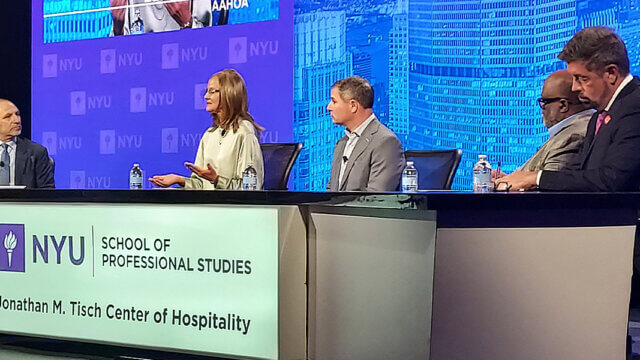WASHINGTON—During a media call regarding the evolving coronavirus situation, The American Hotel & Lodging Association (AHLA) gave updates regarding the ongoing impact to travel and hospitality, and the ways in which the industry is responding.
“We’re on a path toward a financial impact that will be more severe in our industry than post-9/11, more severe than post-financial crisis,” said Chip Rogers, president/CEO, AHLA.
For context, Brian Crawford, EVP & head of government affairs, AHLA, outlined the current condition of the industry. “While nobody is exactly sure how long this public health situation will last, we do know that it is having a huge impact on our industry already and is going to continue to do so,” he said. “In the best-case scenario, what we’re seeing currently is a loss of 4.5 points in occupancy and a 15% decline in revenue.”
Noting that the AHLA is gathering its information from a number of publicly available and private sources, including STR, Wells Fargo, CBRE and Kalibri Labs, Crawford added that this impact varies.
“In certain markets, we are seeing much greater impact than the 15% impact,” he said. “In Seattle and San Francisco, for instance, we have a number of hotels that generally operate at 80-100% occupancy during Monday through Thursday, and this week and next week, they’re looking at 20% or below 20% occupancy. Other areas, including Austin, TX, and Boston, are also seeing significant declines, certainly greater than the baseline we’re talking about.”
According to Crawford, many of the industry’s small-business owners—61% of U.S. hotels are small businesses—are projected to be operating in a negative cash flow position in terms of their expenses and debt. “This means hotels will be unable to fund their operating expenses, including paying for their workforce and their benefits, and ensuring their debt service payments to their lenders,” he said. “In reality, we’re likely to see revenue declines at a much greater percentage in many markets. Already, many of our members are facing difficult decisions as they see significant declines in bookings, as well as a steady clip of cancellations of their meetings and event business. Some industry analysts have shared with us that hotels are losing up to $100 million per day in room revenue alone, which does not account for the additional revenue generated through meetings and events, and food and beverage, and catering. The impact will also be felt in our communities; guests spend $550 billion in hotels and communities while they’re traveling from restaurants to retail. The downstream impacts are hugely important as well.
“We fear that the greatest impact is going to be on our employees—our single best asset in the hotel industry—as well as our small-business owners,” Crawford said.
“This could all be turned around if we can continue to spread the message that travel is safe; you need to take necessary precautions, but if you do, travel is safe,” Rogers stressed. “There’s no place in the United States that has been declared not safe to travel, and if people will continue to travel and help our economy, we can avert some of this. It is a serious and significant issue right now, which is why we are working so closely with the White House and Congress.”
Crawford outlined the substance of these talks. “First and foremost, we have to address these public health issues head on, and that’s what we’re hearing from the White House. They are simultaneously trying to contain the health situation while also identifying what they can do to benefit employers and employees alike,” he said.
According to Crawford, there are immediate steps the government can take to help small-business owners and their employees, including ensuring access to capital. “We want our small-business owners to be able to continue to employ their employees during this difficult patch,” he said. “That’s why access to capital and liquidity is going to be incredibly important. We’re also working with them in asking the Treasury Department to work with the banks on debt forbearance and flexibility around loan options. We’re also simultaneously working with leaders on Capitol Hill to talk through what a potential economic stimulus package could look like that will benefit both our employees and employers.”
This stimulus package would likely be modeled on previous packages, such as those passed after 9/11 and Hurricane Katrina. “These are things that Congress has already agreed upon; there’s a voting record and a precedent for these types of provisions, and there’s a menu of options available to Congress,” Crawford said. “Right now, they’re trying to determine which of these options would be best for this specific scenario. I remain hopeful that an agreement will come to fruition soon. We do expect the House will take up a package [Thursday, March 12]; whether or not the Senate agrees to it is unclear at this point. But next week, I do expect that there will be ongoing conversations between AHLA, the White House and Congress on what a potential economic stimulus package could look like.”
Rogers highlighted the precautions hotels are taking in adherence with CDC guidelines. “In our industry, hotels have protocols in place to deal with everything from the common cold to the flu. Hotels are cleaned each and every day, and we are committed to upholding the highest standards of cleanliness. Some specific examples that you may not see include an increased presence of hand sanitizer stations, increased frequency of guestroom cleanings, increased alcohol content in cleaning materials with a minimum of 60% alcohol, a minimum of 120 degrees for laundry, among other protocols. This preparedness aligns with the latest guidance from the CDC,” he said.
Rogers also stressed the importance of communication for weathering this storm, pointing out that AHLA has been working with partners like the U.S. Travel Association and the International Franchise Association to get the message out. “If we can get decision-makers at every level, from public companies to private companies to elected officials, to make decisions based on facts and health guidelines from the CDC, we will move past this a lot more quickly,” he said.



